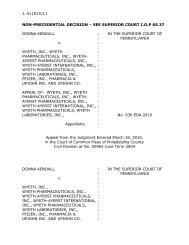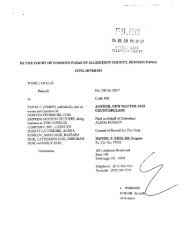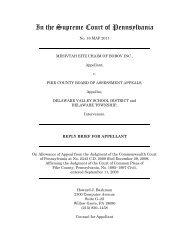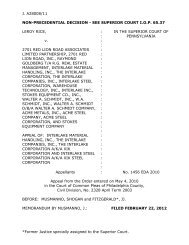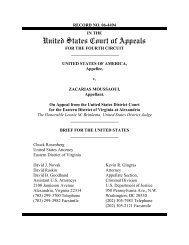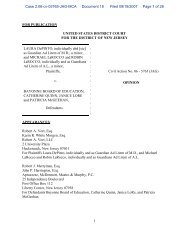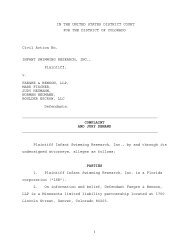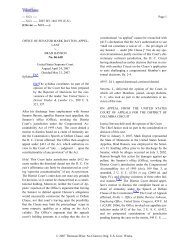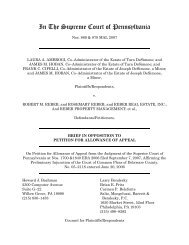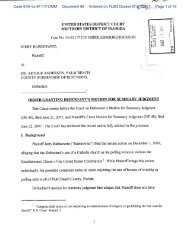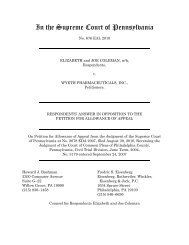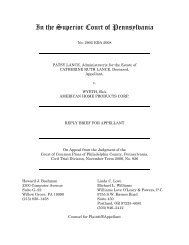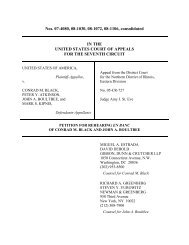Stone v. Bear, Stearns & Co., Inc. - How Appealing
Stone v. Bear, Stearns & Co., Inc. - How Appealing
Stone v. Bear, Stearns & Co., Inc. - How Appealing
You also want an ePaper? Increase the reach of your titles
YUMPU automatically turns print PDFs into web optimized ePapers that Google loves.
challenge the decision based on evident partiality when it knew, or could have known, of facts<br />
suggesting partiality of an arbitrator but waited until an adverse award to pursue its concern.”). We<br />
will call this the “should have known” approach.<br />
We believe the “should have known” approach is more sound. For one thing, limiting waiver<br />
to situations involving “actual knowledge” would encourage willful blindness, which we certainly do<br />
not wish to do. For another, the “should have known” approach best reflects federal policy favoring<br />
the finality of arbitration awards. See Durga Ma, 386 F.3d at 1313 (“Holding that the waiver doctrine<br />
applies where a party to an arbitration has constructive knowledge of a potential conflict but fails to<br />
timely object is the better approach in light of our policy favoring the finality of arbitration awards.”).<br />
We do see some virtue in the “actual knowledge” approach, e.g., in fostering (more) arbitrator<br />
disclosure on the front-end, but not enough to tip the scales.<br />
Under this standard, <strong>Stone</strong> undoubtedly waived his “evident partiality,” “misbehavior,” and<br />
“exceeding powers” challenges to the arbitration award at issue here. All three challenges stem from<br />
the allegedly non-disclosed information about Dr. Marston that <strong>Stone</strong> discovered in his belated, post-<br />
award investigation. By his own admission, <strong>Stone</strong> could have done this research earlier in the<br />
process but did not. Instead, <strong>Stone</strong> waited until he lost and then almost immediately began scouring<br />
the internet for anything that might suggest one arbitrator or another was biased against him. <strong>Stone</strong><br />
spent approximately twenty (20) hours on this task, researching not one, but all three arbitrators<br />
looking for evidence of partiality. This is exactly the kind of undesirable strategic behavior that the<br />
waiver doctrine is designed to prevent. As aptly stated by the Seventh Circuit in remarkably similar<br />
circumstances:<br />
Case 2:11-cv-05118-LDD Document 22 Filed 05/29/12 Page 32 of 35<br />
It is true that [arbitrator] disclosure requirements are intended in part to avoid the<br />
costs of background investigations. But this is a $10 million case. If [petitioner]<br />
had been worried about putting its fate into the hands of someone who might be<br />
[biased], it would have done more than it did to find out about [the arbitrator]. That<br />
32



